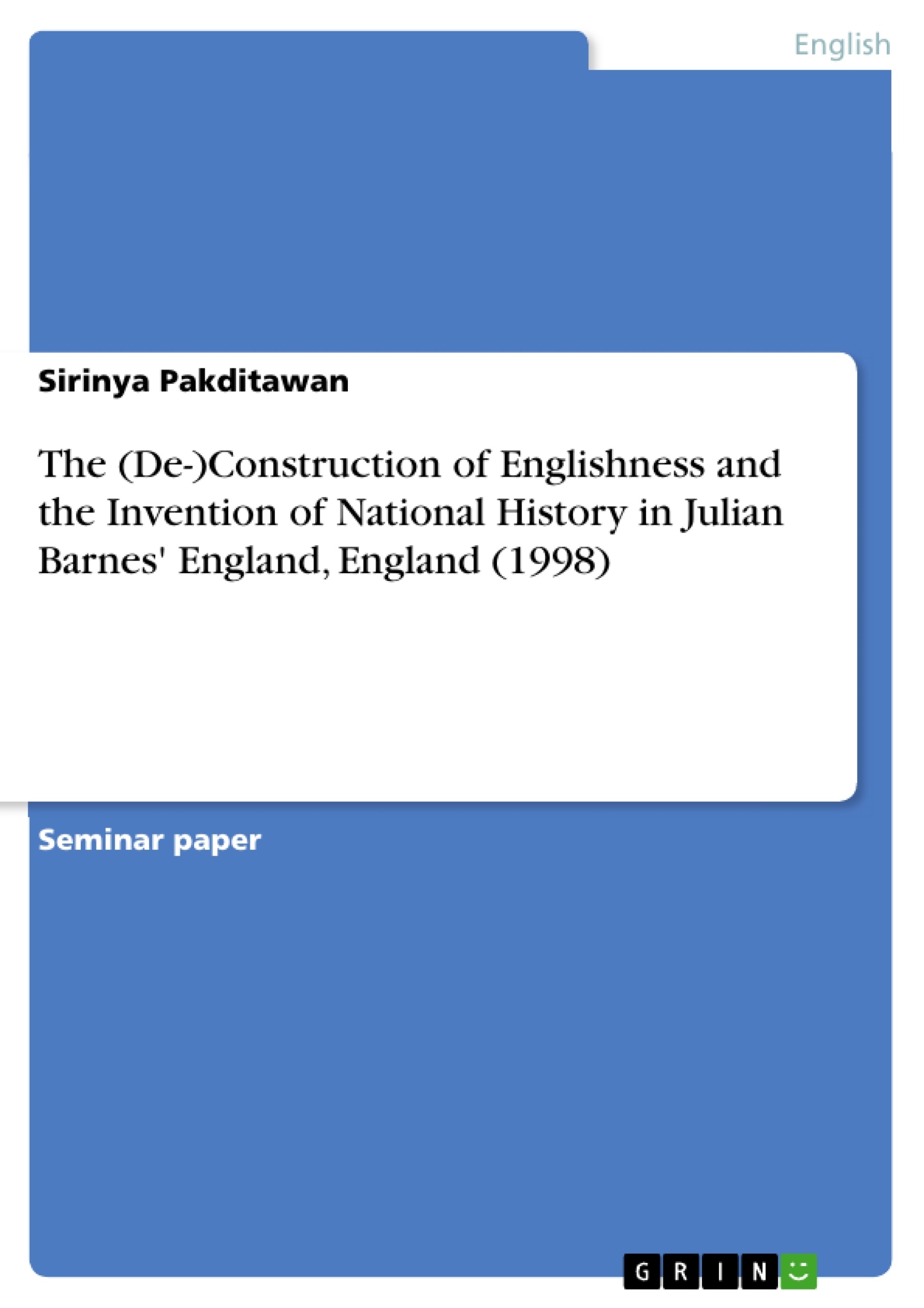Numerous contemporary British novels display an almost obsessive concern with the notion of Englishness. Hence, they focus on the myths, traditions and attitudes that are regarded as typically English. This is a subject which is also of central interest to recent literary criticism and cultural history at large. Among the many novels that deal with a literary exploration of England’s past, its cultural memory, and its national identity are such well-known works as John Fowles’ Daniel Martin (1977), Jonathan Raban’s travelogue Coasting (1986), Andrew Sinclair’s “Albion triptych”, including his novels Gog (1967), Magog (1972) and King Ludd (1988), Adam Thorpe’s Ulverton (1992), Peter Ackroyd’s English Music (1992) and Antonia S. Byatt’s and Graham Swift’s novels. These works can be regarded as a kind of echo-chamber of England’s cultural history, for they display “deliberate Englishness”.1 With its interest in Englishness, the nature of historical truth, and the blurring of boundaries between the authentic and the imitation, Julian Barnes’ novel England, England (1998), which was short-listed for the Booker prize in 1998, shares important concerns with many contemporary British novels. Like a host of other novels published after the 1960s, England, England focuses on the question of how much we can ever know about the past. Hence, this novel shows all the features characteristic of postmodernist historiographic metafiction. That is to say, like other historiographic metafictions, England, England is “both intensely selfreflexive and yet paradoxically also lay[s] claim to historical events and personages”.2 What is more, Barnes’ novel also reflects the feature which has been the major focus of attention in most of the critical work on postmodernism, i.e. a self-conscious assessment of the status and function of narrative in literature, history, and theory: “its theoretical self-awareness of history and fiction as human constructs (historiographic metafiction) is made the grounds for its rethinking and reworking of the forms and contents of the past”.3
Inhaltsverzeichnis (Table of Contents)
- Introduction
- The (De-)Construction of Englishness and the Invention of National History in Julian Barnes' England, England
- Conclusion
- Bibliography
Zielsetzung und Themenschwerpunkte (Objectives and Key Themes)
This analysis aims to explore how Julian Barnes' novel England, England deconstructs and constructs "Englishness" through the fictionalized invention of national history. The novel scrutinizes the nature of historical truth and the blurred boundaries between the authentic and the imitation, offering a critical examination of English cultural memory and national identity.
- The (De-)Construction of "Englishness" and its cultural significance
- The invention of national history and its relationship to memory
- The manipulation of historical narratives for economic and political purposes
- The tension between authenticity and imitation in shaping national identity
- The role of nostalgia and sentimentality in constructing a sense of Englishness
Zusammenfassung der Kapitel (Chapter Summaries)
The novel's structure highlights the evolution of England through three distinct phases, each represented through the experiences of Martha Cochrane, the female protagonist. The first part introduces the themes of individual and national memory, patriotism, and the romanticized view of English history. This section depicts a nostalgic, idealized vision of England, symbolized by Martha's childhood memories and her fascination with the "Countries of England" jigsaw puzzle.
Part II, however, presents a stark contrast, focusing on the commercialization of Englishness and the deliberate creation of a "new" England for the purpose of tourism. The novel explores the manipulation of historical narratives and the exploitation of national identity for economic gain.
Schlüsselwörter (Keywords)
This analysis explores the key concepts of "Englishness," national history, cultural memory, authenticity, imitation, nostalgia, and the postmodernist perspective on historiographic metafiction. The novel examines how these concepts are intertwined in the construction and deconstruction of national identity and how they are manipulated for economic and political purposes. The analysis focuses on Barnes' use of satire and irony to expose the complexities of cultural identity and the problematic nature of constructing "national" narratives.
Frequently Asked Questions
What is the central theme of Julian Barnes' "England, England"?
The novel explores the construction and deconstruction of "Englishness," national identity, and the blurring boundaries between authenticity and imitation.
What is "historiographic metafiction" in the context of this novel?
It refers to a postmodern narrative style that is self-reflexive about the nature of history and fiction, treating both as human constructs rather than objective truths.
How does the novel depict the commercialization of history?
Part II of the novel focuses on the creation of a "new" England on the Isle of Wight, where historical myths are manufactured and exploited for tourism and economic gain.
Who is the protagonist of the story?
The female protagonist is Martha Cochrane, whose life experiences and memories reflect the shifting phases of national identity throughout the book.
What role does nostalgia play in the construction of Englishness?
Nostalgia is shown as a powerful tool used to romanticize the past, creating an idealized vision of England that often ignores historical reality in favor of comforting myths.
- Citation du texte
- Sirinya Pakditawan (Auteur), 2004, The (De-)Construction of Englishness and the Invention of National History in Julian Barnes' England, England (1998), Munich, GRIN Verlag, https://www.grin.com/document/186201



